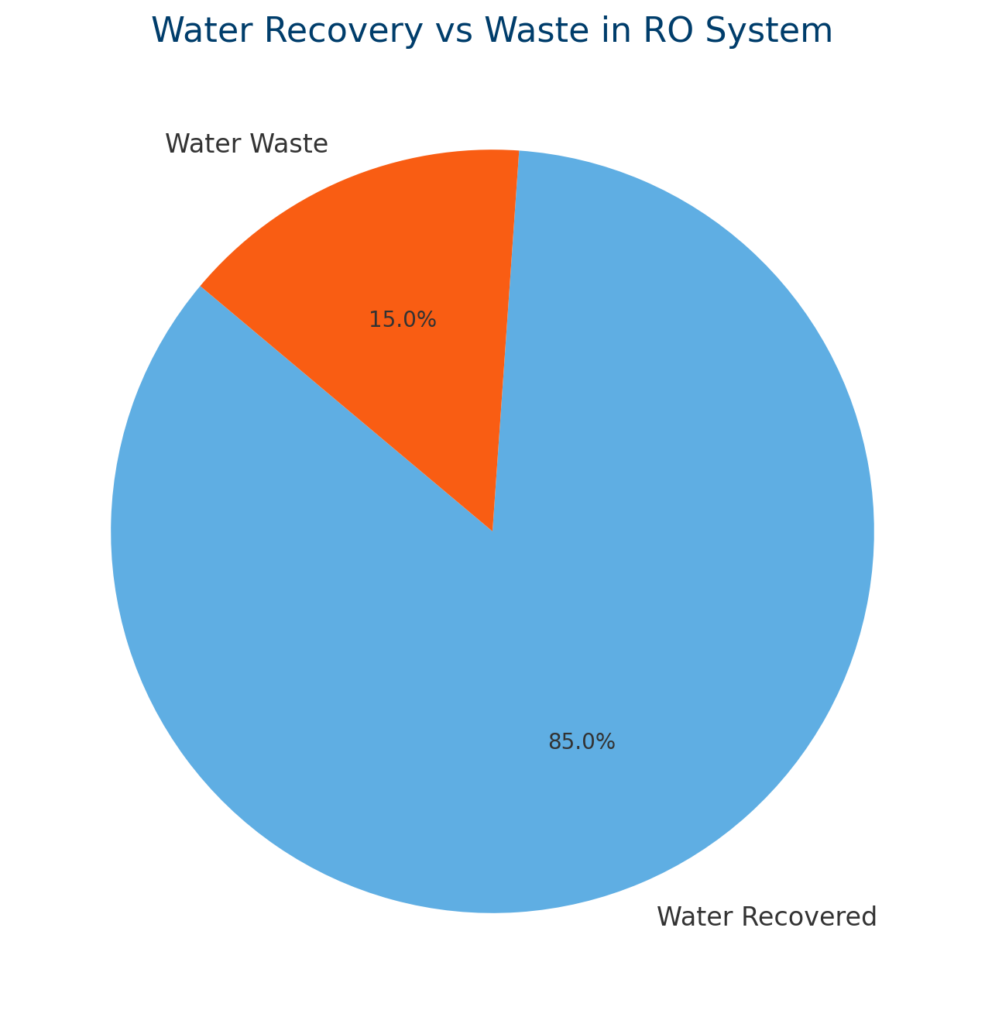Reverse Osmosis and Sustainable Water Management
Sustainability is an increasingly important goal for industries and municipalities worldwide, with a focus on reducing environmental impact and conserving resources. Reverse osmosis (RO) systems have become an essential part of sustainable water management, offering a method of water purification that aligns with environmental objectives. In this article, we’ll explore how RO systems contribute to sustainability efforts and support the achievement of environmental goals.
Sustainable Water Management
Sustainable water management involves the responsible use and treatment of water to meet current needs without compromising the ability of future generations to meet their own needs. It includes practices that promote water conservation, reduce pollution, and protect natural ecosystems. RO systems play a key role in these efforts by providing an efficient means of water purification that minimizes resource consumption and environmental impact.
Reduced Water Usage
One of the key environmental benefits of RO systems is their ability to minimize water waste. Traditional water treatment methods can be inefficient, often resulting in a significant volume of water being discarded. In contrast, modern RO systems are designed to optimize water recovery, ensuring that more of the input water is purified and reused.
Key Aspects of Water Conservation:
- High Recovery Rates: Advanced RO systems can achieve high water recovery rates, often between 75% and 90%, reducing the amount of water that is wasted.
- Permeate Recovery: Many systems include permeate recovery devices that capture and reuse water, further enhancing water conservation efforts.
Case Example: A textile manufacturing plant implemented an RO system with a permeate recovery unit, achieving an 85% water recovery rate. This led to a significant reduction in water usage, helping the facility meet sustainability targets while reducing operational costs.

Lower Environmental Impact
RO systems not only reduce water waste but also have a lower environmental impact compared to other water treatment methods. They avoid the use of harsh chemicals and produce fewer byproducts that require management, contributing to a cleaner and more sustainable process.
Environmental Advantages:
- Reduced Chemical Usage: RO systems rely on physical filtration to remove contaminants, minimizing the need for chemical additives in the treatment process. This reduction in chemical usage decreases the potential for environmental contamination and aligns with efforts to minimize ecological footprints.
- Energy Efficiency: Modern RO systems incorporate energy-efficient technologies that lower the overall energy consumption required for water purification. By optimizing energy use, these systems contribute to a reduced carbon footprint and support broader sustainability goals.
Case Example: An electronics manufacturing facility integrated an energy-efficient RO system into its water treatment process. This upgrade reduced energy consumption by 30%, significantly lowering the facility’s carbon emissions and contributing to its sustainability initiatives.
Connecting RO to Sustainable Water Management Goals
RO systems support several key sustainable water management goals, such as reducing water consumption, minimizing pollution, and conserving energy. By efficiently removing contaminants from water, RO systems help facilities meet regulatory standards while reducing their overall environmental impact.
- Water Recycling and Reuse: RO systems enable facilities to recycle and reuse water, which is especially valuable in regions with limited water resources. By treating and reusing water, facilities can reduce their reliance on fresh water sources and contribute to sustainable water management.
- Zero Liquid Discharge (ZLD): In some applications, RO systems can be part of a Zero Liquid Discharge process, where all water used in a facility is treated and reused, with minimal waste. This approach maximizes water conservation and minimizes environmental impact.
Case Example: A chemical processing plant adopted an RO system as part of a Zero Liquid Discharge (ZLD) initiative, enabling the facility to recover and reuse 98% of its water. This significantly minimized waste and reduced the need for fresh water intake.
EAI Water’s Role in Sustainable Water Management
EAI Water is committed to providing sustainable water treatment solutions that help clients achieve their environmental goals. Our RO systems are designed to maximize efficiency, reduce waste, and support sustainable water management practices. Whether you’re looking to reduce water usage, lower your facility’s carbon footprint, or implement a circular water economy, EAI Water has the expertise and technology to help you succeed.
If you’re interested in learning more about how reverse osmosis systems can support your sustainability efforts, or if you have specific questions about their applications, contact us today. Our team is here to provide expert guidance and information to help you make informed decisions about your water treatment needs.
FAQs
Q: How does reverse osmosis help the environment?
A: Reverse osmosis helps the environment by reducing water waste, minimizing chemical usage, and lowering energy consumption, all of which contribute to a reduced environmental impact.
Q: What are the sustainable development goals for water and wastewater treatment?
A: Sustainable development goals for water and wastewater treatment include reducing water consumption, improving water quality, promoting recycling and reuse, and ensuring access to clean water for all.
Q: Can reverse osmosis be used for recycling wastewater?
A: Yes, reverse osmosis is commonly used for recycling wastewater, particularly in industrial applications. It effectively removes contaminants, allowing treated water to be reused in various processes, thereby supporting water conservation efforts.
Q: What makes reverse osmosis a sustainable water treatment option?
A: Reverse osmosis is considered a sustainable option because it reduces the need for harmful chemicals, conserves water through high recovery rates, and minimizes energy use with modern, efficient designs.
Q: How does RO contribute to a circular water economy?
A: RO systems contribute to a circular water economy by enabling the recycling and reuse of water within a facility. This reduces the need for fresh water intake and minimizes waste, helping facilities operate more sustainably.